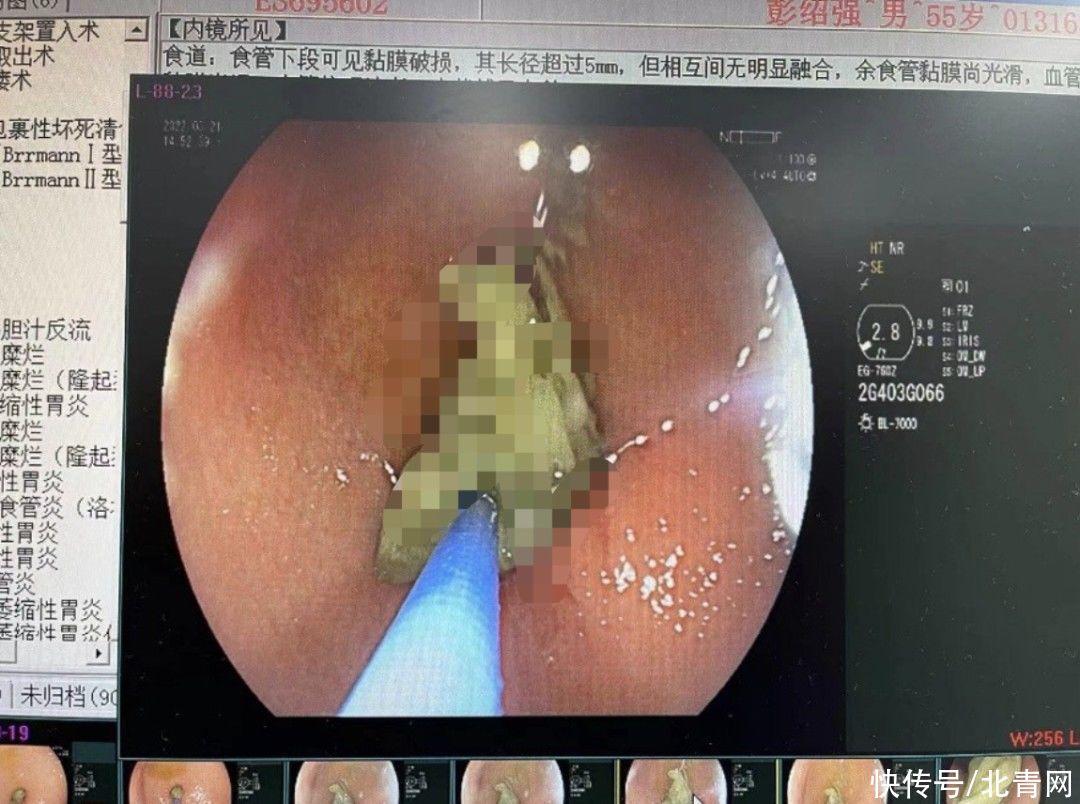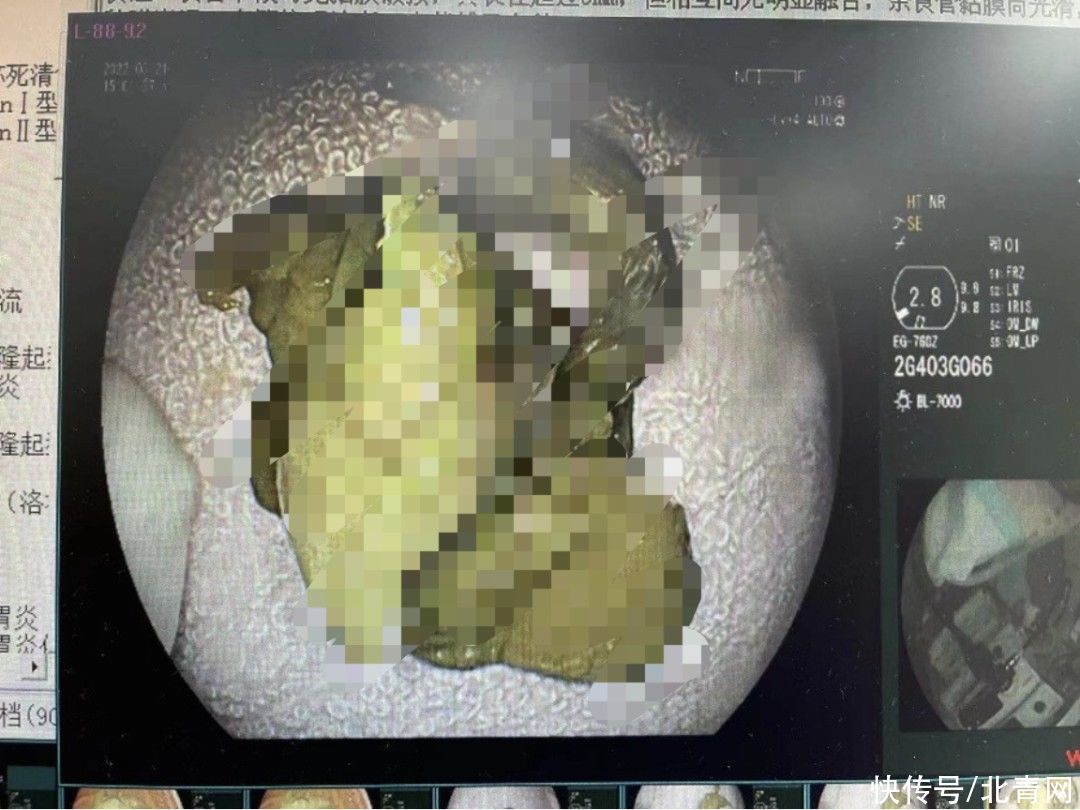Reporter: Wang Xin/ Correspondent: Wang Wenting
Source: Hangzhou Traffic 918
Lao Gu (pseudonym) in his 70s has been unable to eat recently, and his stomach is still bloated , What to eat and vomit, it is really uncomfortable. A B-ultrasound was performed at the local hospital, suggesting chronic cholecystitis, and at the same time, “gastric retention” was found. After getting the results, the local doctor frowned and suggested that a higher-level hospital see a doctor. Lao Gu can’t eat or sleep: Do I have stomach cancer? A false alarm! It turned out that the “unidentified object” was not a tumor. Accompanied by his children, Lao Gu came to the Gastroenterology Department of Hangzhou First People’s Hospital and found Zhou Haibin, the deputy chief physician. Dr. Zhou arranged digestive endoscopy for Lao Gu. When entering the mirror into the gastric antrum, Dr. Zhou clearly saw a large mass of “unidentified objects” “plugged” at the pylorus. The experienced man immediately smiled, and the originally heavy atmosphere in the endoscopy room suddenly became active. Everyone is guessing: what is this large group of “unidentified objects”? With Dr. Zhou’s careful endoscopic-assisted operation, the group of “unidentified objects” was finally “pulled out” from Lao Gu’s mouth. Everyone gathered to watch: It turned out to be sauerkraut!

The family members waiting at the door were already prepared for the worst, so when they saw the sauerkraut, they burst into tears with excitement: “That’s great, That’s great, if it’s not cancer, just tell him to eat less sauerkraut, but he won’t listen, and let the sauerkraut block his stomach!” But Dr. Zhou said, this is not the “pot” of sauerkraut!

Helicobacter pylori is the “culprit” of food obstruction. Deputy Chief Physician Zhou Haibin explained that from the gastroscopic manifestations, the patient may have been infected with pylori a long time ago Helicobacter infection causes inflammation of the gastric mucosa, which develops into peptic ulcers. “Because duodenal ulcers were not treated in time, repeated ulcers-scars-ulcer growth eventually led to duodenal stenosis.” Dr. Zhou said, “Sauerkraut is not easy to digest because of crude fiber, so it is difficult to digest. The duodenum is blocked, but even if it’s not sauerkraut, it could be other foods.” Finally, Dr. Zhou reminded on the “Old Valley Sauerkraut Incident” that removing Helicobacter pylori can help heal ulcers and significantly reduce digestion. recurrence of ulcers. Therefore, we must pay attention to the treatment of Helicobacter pylori after the diagnosis of “ulcer disease”. “If you do not sterilize, but simply heal peptic ulcers, the probability of recurrence of ulcers in the next year is about 60%. If repeated ulcer scars heal, you may be the next old valley.”